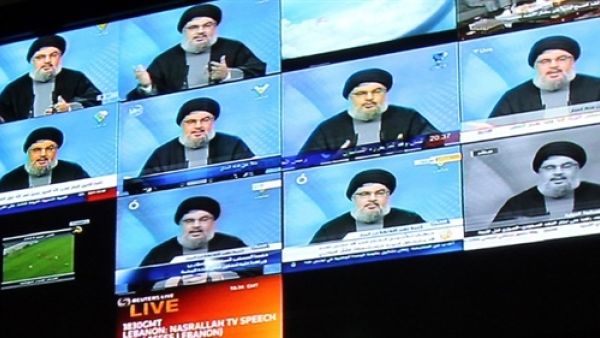EU foreign ministers decide Monday whether to blacklist the military wing of Hizbullah, with an eye also on the conflict in Syria and the possible resumption of stalled Israel-Palestinian talks.
Hizbullah, which is close to Iran, is Israel's sworn enemy, and its recent intervention in Syria has dismayed Western powers who back rebels battling to oust President Bashar Assad.
A decision to place the group on the European Union list of terrorist groups requires approval by all 28 national ministers and it will take time, if agreed, to proceed to actual sanctions.
The EU seeks to play a leading role in the Middle East peace process and on Friday foreign affairs chief Catherine Ashton warmly welcomed news that U.S. Secretary of State John Kerry had got Israel and the Palestinians to resume peace talks.
Foreign ministers were due to review the Middle East situation Monday but the issue may now demand more time given the possible wider impact of a decision on Hizbullah.
"There are still some reservations ... but we are moving towards a decision on listing Hizbullah's military wing," a senior EU official said Friday as top Lebanese officials warned that such a move could potentially destabilize the fragile country.
The official stressed that a decision would be fully justified by Hizbullah's involvement in an attack against Israeli tourists in Bulgaria last year and its activities in Cyprus.
But it would "not impact current EU policy and engagement with Lebanon," the official said, arguing that only the military wing would be targeted and not Hizbullah's political side.
On Thursday, Caretaker Foreign Minister Adnan Mansour asked Brussels not to blacklist Hizbullah on the grounds the group was an "essential component of Lebanese society."
He sent memos to the EU states upon the request of President Michel Suleiman.
Several EU member states have expressed sharp reservations over blacklisting it precisely because of such fears, but EU sources believe the consensus is now to go ahead.
Mansour expected the EU foreign ministers to fail in declaring the military wing of Hizbullah a terrorist organization over the reservations expressed by some countries.
Among them are Cyprus, Malta, the Czech Republic and Ireland. Belgium and Sweden could join them, he said.
Mansour warned that such a decision would be a major blow to the Lebanese states.
He accused some Lebanese politicians of collaborating with the EU and some western diplomats to push for blacklisting Hizbullah's military wing.
"We would be surprised if some ministers stood in the way of the EU taking robust action on terrorism," a senior EU official said. "They'll need to think quite carefully before blocking consensus."
Asked if Hizbullah's intervention in support of Assad in Syria had changed opinion, the first senior official insisted this was "another issue completely."
The decision was "solely driven" by concerns over terrorist actions in Europe, he added.
EU sources said Syria and Egypt, which Ashton visited recently to press the need to uphold democratic reforms, will both be discussed Monday.









